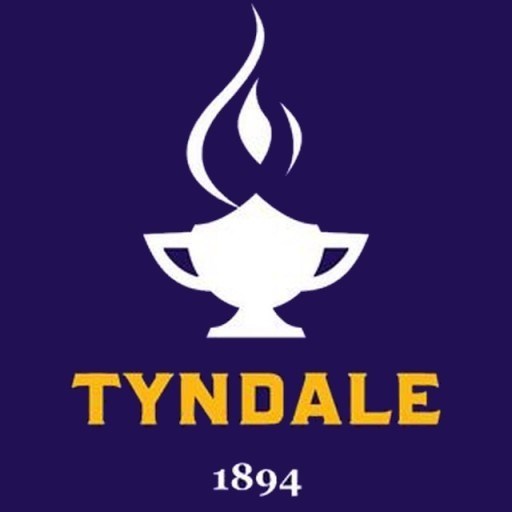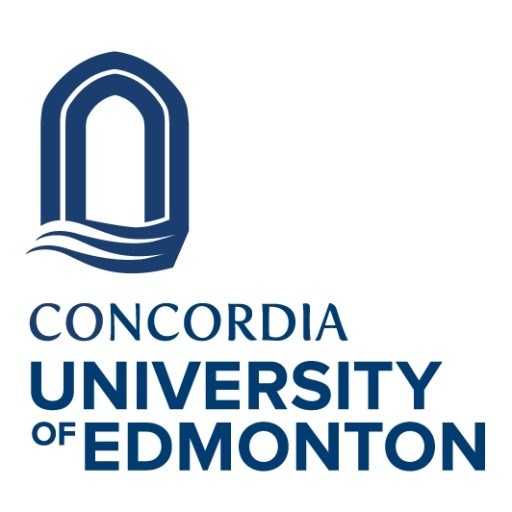Photos of university / #adleruniversity
The Master of Counselling Psychology (M.C.P.) non-thesis program at Adler University’s Vancouver Campus is designed to prepare students for a career as professional counsellors, psychologists, and mental health practitioners. This comprehensive program emphasizes the development of practical skills, ethical practices, and theoretical knowledge necessary to support individuals, couples, families, and communities in their mental health and well-being. The curriculum integrates a variety of counselling approaches, including cognitive-behavioral, humanistic, psychodynamic, and multicultural perspectives, ensuring graduates are equipped to serve diverse populations with sensitivity and cultural competence. Throughout the program, students engage in rigorous coursework, experiential learning, and supervised practicum placements, which provide real-world experience and foster the application of theory to practice. The non-thesis structure allows students to focus intensively on acquiring clinical skills and experiential learning without the obligation of producing independent research, making it a suitable choice for those aiming to enter the counselling profession directly. Faculty members are experienced practitioners and scholars committed to mentorship, personalized instruction, and fostering critical thinking. The program also emphasizes ethical responsibilities, self-awareness, and reflective practice, essential qualities for effective counselling. Upon completion, graduates are well-prepared to meet the requirements for certification and licensure in various jurisdictions, advancing their careers in mental health counselling in clinical, community, educational, or organizational settings. The Vancouver Campus’s inclusive and supportive learning environment encourages collaboration, continuous professional development, and the pursuit of social justice and equity in mental health. Whether students are seeking to deepen their existing knowledge of counselling or to transition into a new career path, the Adler University M.C.P. program provides a rigorous, experiential, and community-focused education to foster competent, ethical, and compassionate mental health professionals.
The Master of Counselling Psychology (M.C.P.) non-thesis program at Adler University Vancouver is designed to prepare students for professional practice as registered counsellors, equipped with the knowledge, skills, and ethical understanding required to support diverse client populations. The curriculum emphasizes a comprehensive understanding of human behaviour, psychological theories, and therapeutic techniques, providing students with a solid foundation in counselling principles. Throughout the program, students engage in rigorous coursework covering areas such as developmental psychology, psychopathology, multicultural counselling, and ethical practice, ensuring a well-rounded education that prepares them for real-world challenges.
A key component of the program is practical training, which includes supervised practicum placements in various community settings. These placements give students hands-on experience working with individuals, families, and groups, applying their theoretical knowledge in real-life situations under the guidance of experienced professionals. Emphasis is placed on developing core skills such as active listening, assessment, intervention, and culturally sensitive counselling practices. The program also fosters critical thinking and reflective practice, encouraging students to continually evaluate their approaches and grow as practitioners.
In addition to core coursework and practicum, students have opportunities to participate in workshops, seminars, and other professional development activities that enhance their competencies and connect them with practitioners and organizations in the mental health field. Adler University’s distinctive emphasis on social justice, diversity, and ethical responsibility ensures that graduates are prepared to serve diverse populations thoughtfully and ethically.
The program is typically completed within two years of full-time study, allowing students to integrate academic learning with practical application efficiently. Upon graduation, students are eligible to pursue registration with relevant professional bodies, enabling them to work as licensed counselling psychologists and mental health practitioners across a variety of settings, including private practice, community agencies, schools, and healthcare organizations. The M.C.P. non-thesis at Adler University Vancouver is committed to cultivating reflective, competent, and socially responsible counsellors dedicated to making meaningful contributions to individual well-being and societal health.
Program requirements for the Adler University Counselling Psychology (M.C.P. non-thesis) typically include a comprehensive set of coursework, practicum experiences, and other academic standards designed to ensure students are well-prepared for professional practice. Students are generally expected to complete core coursework that covers foundational topics such as counselling theories, ethics and legal issues in counselling, human development, multicultural competence, assessment and diagnosis, and intervention strategies. These courses are designed to equip students with a broad understanding of psychological principles and practical skills necessary for effective counselling.
In addition to coursework, students must participate in supervised practicum placements, providing real-world experience working with diverse client populations under the guidance of licensed professionals. The practicum component often constitutes a significant portion of the program, requiring students to accumulate a specified number of hours in clinical settings. During these placements, students develop competencies in conducting assessments, implementing treatment plans, and engaging in professional consultation.
The program may also include coursework or modules on research methods and ethical practices to prepare students for evidence-based practice and professional standards. Emphasis is placed on multicultural competence, ensuring students are prepared to serve diverse communities effectively.
Students are required to maintain a minimum grade point average (GPA) in their coursework, and may need to submit reflective journals, case studies, or portfolios demonstrating their clinical and academic growth. As this is a non-thesis program, students are not required to complete a research thesis but may instead undertake comprehensive examinations or practicums.
Adler University also emphasizes professional development, requiring attendance at seminars, workshops, and conferences relevant to counselling psychology. Successful completion of all practicum hours, coursework, and program evaluations allows students to graduate and pursue licensure or registration as counselling psychologists in their respective regions.
Please note that specific details such as the exact number of practicum hours, course titles, and GPA requirements can vary and should be confirmed through the university's official program descriptions and academic advisement resources.
The financing of the Counselling Psychology (M.C.P. non-thesis) program at Adler University’s Vancouver Campus primarily relies on a combination of tuition fees paid by students, potential financial aid options, and institutional funding. Tuition fees for this program are structured to cover the costs associated with faculty salaries, administrative support, academic resources, counselling facilities, and other operational expenses. Prospective students should anticipate academic year tuition rates that are aligned with Adler University’s overall fee framework for graduate professional psychology programs.
Financial aid opportunities are generally available to eligible students through various sources. These may include institutional scholarships, bursaries, or financial assistance programs designed to support graduate students pursuing careers in psychology and counselling. Students may also explore external funding sources such as government grants, education loans, or private scholarships tailored to doctoral or master’s level psychology students.
Adler University may offer credit or Loan programs through partnerships with financial institutions to assist students with managing tuition payments. Some students might also seek employment opportunities on campus, such as research assistantships, teaching assistantships, or part-time roles within university support services, to offset their educational costs.
It’s important to note that international students might have different financial considerations, including higher tuition rates and specific scholarship opportunities. Detailed information about cost, payment schedules, and financial aid eligibility can typically be found on the university’s official website or by consulting the university’s admissions and financial aid offices.
Given that this is a non-thesis master's program, students are encouraged to plan their finances carefully, considering the duration of the program, associated expenses beyond tuition (such as textbooks, materials, and practicum fees), and potential funding sources. Overall, the program aims to make advanced training in counselling psychology accessible through various financial support mechanisms, although exact figures and specific aid options should be confirmed through official university resources.
The Counselling Psychology (M.C.P. non-thesis) program at Adler University Vancouver Campus is designed to prepare students to become competent and ethical mental health professionals specializing in counseling psychology. This program emphasizes a practitioner-scholar model, integrating rigorous academic coursework with practical training to equip graduates with the skills necessary for effective client engagement and therapeutic intervention. Students in this program develop a comprehensive understanding of psychological theories, assessment techniques, and evidence-based treatment modalities, enabling them to work with diverse populations in various settings, including community agencies, private practice, and institutional environments.
The curriculum emphasizes multicultural competence, social justice, and advocacy, reflecting Adler University's mission to serve marginalized communities and promote equity in mental health services. The non-thesis structure allows students to focus more intensively on applied skills and clinical practice hours, providing a practical pathway toward licensure as a professional counselor or psychologist. Students undertake supervised practicum placements, gaining real-world experience under the guidance of licensed professionals, which enhances their clinical competencies and prepares them for employment post-graduation.
Adler University also fosters a collaborative learning environment that encourages peer interaction, reflective practice, and continuous professional development. The program typically includes coursework in psychopathology, counseling theories, ethical and legal issues in psychology, lifespan development, and specialized areas such as trauma, addiction, and diversity.
Graduates of the program are well-positioned to contribute meaningfully to the mental health field, offering services that are culturally sensitive and ethically grounded. Upon completion, graduates can pursue licensure as Registered Psychologists or Registered Clinical Counsellors, depending on jurisdictional requirements. The university's Vancouver campus combines a vibrant urban setting with state-of-the-art facilities and a faculty comprised of experienced practitioners and scholars dedicated to social justice and community engagement.
Overall, the Counselling Psychology (M.C.P. non-thesis) program at Adler University Vancouver stands out for its commitment to experiential learning, social responsibility, and preparing students to meet the complex mental health needs of diverse populations. It offers a comprehensive educational experience that balances academic rigor with practical application, ensuring graduates are ready to make meaningful contributions in the field of counseling psychology.


